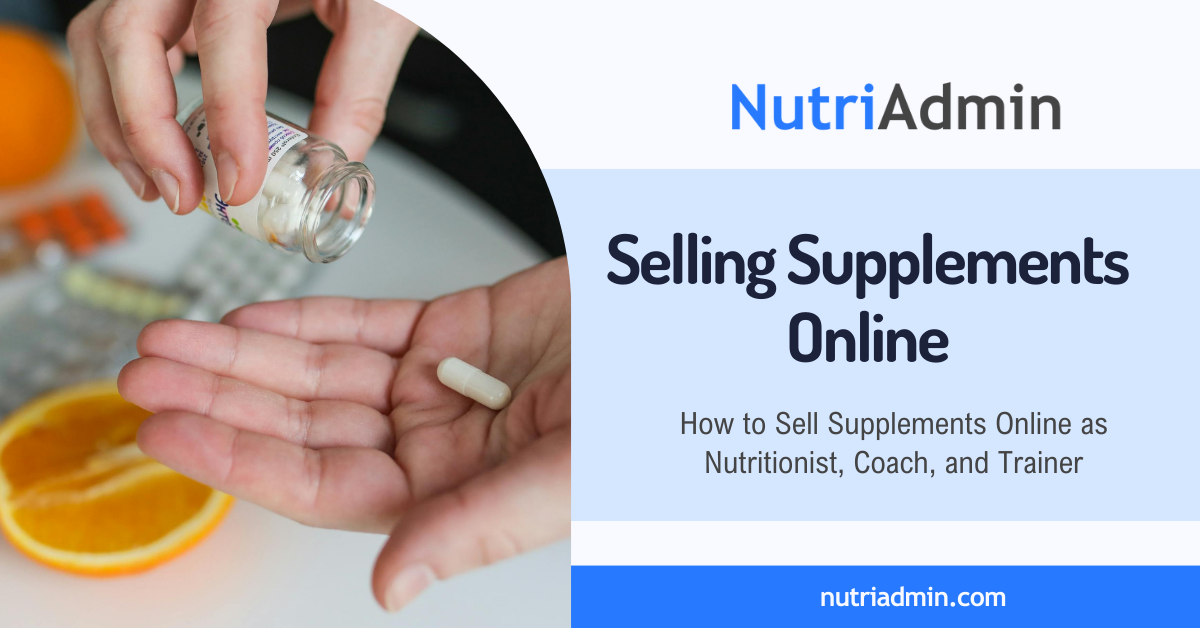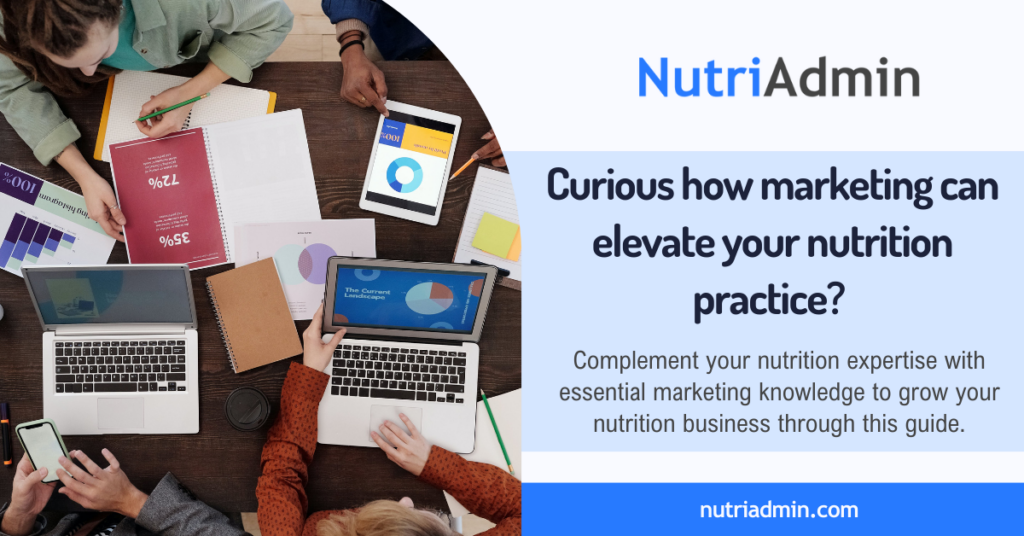Are you a nutritionist, coach, or personal trainer looking to make extra income from selling supplements online? Are you wondering how to identify micronutrient deficiencies or how to test for micronutrient deficiencies? Do you want to know how to detect common vitamin deficiencies and also identify symptoms of vitamin deficiency?
Then this article is for you!
The dietary supplement market around the world is on a steady rise. In the US alone, the value of the US dietary supplement market will rise to about 56.7 billion dollars in 2024. That is more than a 78% increase from 8 years ago when the market’s value was 31.7 billion dollars.
Now what would make an industry experience almost a 100% increase in less than a decade?
Demand!
- Why You Should Sell Supplements Online
- Who is This Guide for?
- What are Supplements?
- When are Supplements Necessary?
- What is a Deficiency?
- How to Test for Vitamin Deficiency
- Understanding Vitamins and Mineral Deficiencies Before Selling Supplements Online
- How to Analyze Diet and Look for Deficiencies in Minerals/Vitamins Before Selling Supplements Online
- Common Deficiencies in Popular Diets
- Selling Supplements Online
- How to Sell Supplements Online
- What is Medicare Supplement?
- How to Sell Medicare Supplements
- Conclusion
- Frequently Asked Questions
Why You Should Sell Supplements Online
More than ever before, people are becoming conscious of what they eat, how what they eat impacts their bodies, and deficiencies in their diets. A survey by Michigan State University in 2018 showed that more Americans are paying attention to food labels and the information they get influences what they buy to eat.
Since more people are conscious of what they eat now, then they can find out what is deficient, or inadequate in their diet. And when they do this, they can then find ways to supplement them, hence the rise in the demand. Another study among consumers showed that the top two reasons for supplement use are overall health and wellness and to fill nutrient gaps in the diet.
As a nutritionist, personal trainer, or coach, when you decide to sell supplements online, you can significantly boost your income. Apart from this, learning how to sell supplements gives you the ability to help your clients who need the supplements.
As a professional, you have more knowledge about supplements, their benefits, and pitfalls to avoid. So, selling supplements online places you at a vantage position to educate your clients and counsel them on when they need or do not need supplements.
Who is This Guide for?
If you are a nutritionist, coach, or personal trainer looking to sell supplements to your clients, this guide is for you.
What are Supplements?
Before we get into the selling part, you should know what you are selling. According to the FDA, “Dietary supplements are intended to add to or supplement the diet and are different from conventional food.”
Supplements come in different forms such as tablets, soft gets, powders, capsules, liquids, bars, and gummies. The FDA emphatically states that dietary supplements are not food and people should not take them in place of food varieties that are essential to a healthy diet.
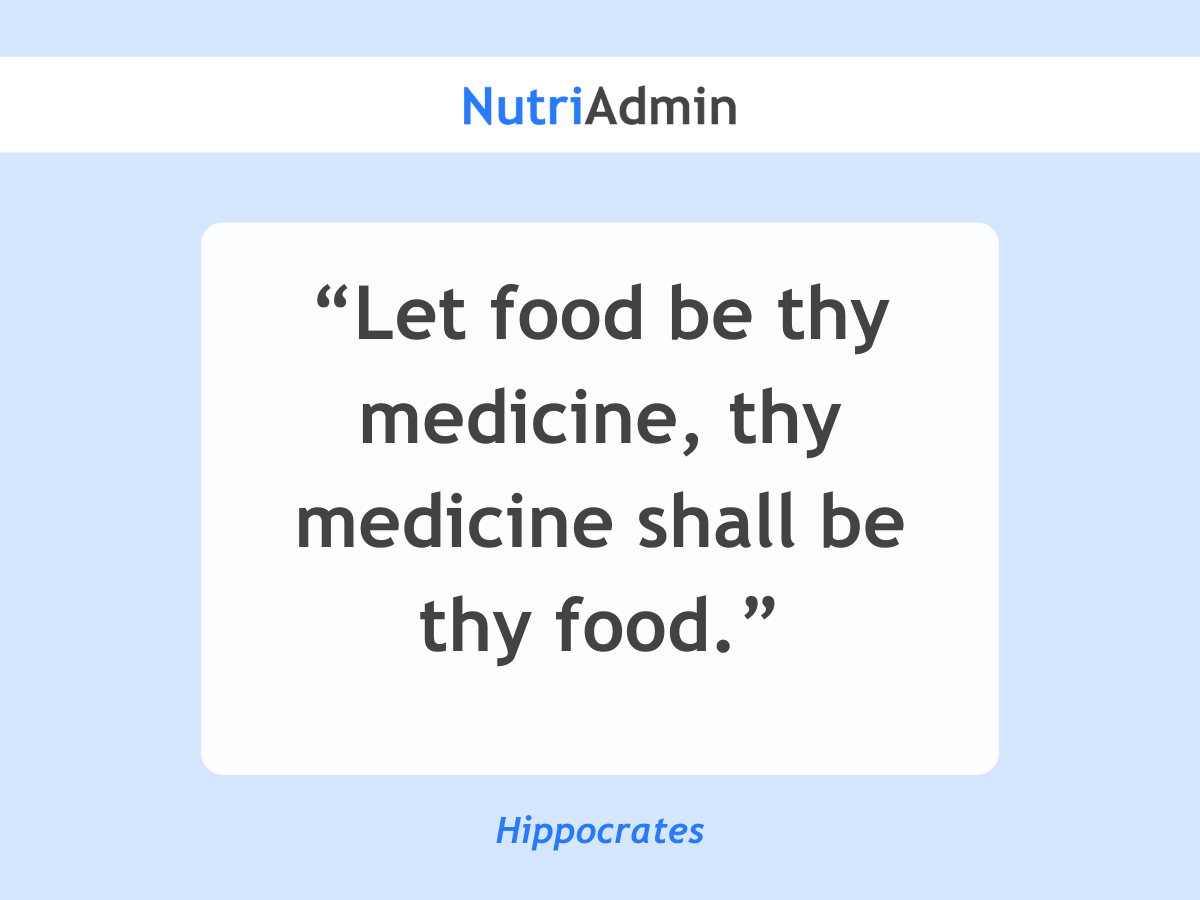
When are Supplements Necessary?
You must educate your clients not to take supplements indiscriminately. You should ensure your clients understand that they should have genuine reasons to take supplements. Some reasons include:
1. To meet the recommended daily allowance of essential nutrients: In post-menopausal women, for instance, Calcium loss is significant and can lead to fractures if nothing is done about it. Supplements can help fill this gap. Also, Vitamin D is essential for absorbing calcium in the body. However, not so many food sources have vitamin D in abundance. So, supplements are useful here to prevent a deficiency.
2. Medical conditions: Supplements are necessary for people with certain diseases. For instance, calcium is useful in osteoporosis, and zinc, and copper, in inflammatory bowel disease. Studies show that Zinc reduces the severity of episodes of diarrhoea, and also the possibility of a recurrence.
3. Deficiencies: Supplements might become essential when a person is suffering from a nutrient efficiency that may not be readily available from foods.
4. Sports and Recreation: Several studies have shown that athletes and sports personnel can do just fine without supplements. However, research also shows that a few dietary supplements may enhance performance when they are used as additives, not replacements, to a balanced diet. As a coach, personal trainer, or nutritionist, you can guide your clients on how to achieve their bodybuilding goals without compromising their health.
What is a Deficiency?
A nutrient deficiency refers to a condition that occurs when the body is getting inadequate nutrients. There is an optimal amount of each nutrient that the body requires and a nutritional deficiency will result when this amount is not provided. The most common types of nutritional deficiencies are micronutrient deficiencies. Examples of micronutrients are minerals and vitamins.
How to Test for Vitamin Deficiency
Doctors can test for Vitamin deficiency through blood tests. To do this, a doctor may need to request those tests or take some blood samples. Apart from the test, there are some symptoms that you may observe when your client has a vitamin deficiency.
- Bleeding Gums: This may be a symptom of vitamin C deficiency, and they may also complain of tooth loss.
- Poor night vision: Poor vision at night may be the result of Vitamin A deficiency. The condition is also known as night blindness and if not treated can lead to complete blindness.
- Recurrent mouth ulcers: Recurrent mouth ulcers can be a sign of Vitamin B ( B1, B2, or B6) deficiency.
- Brittle hair and nails can be a sign of vitamin B deficiency.
- Anemia refers to a shortage of red blood cells. Your client may complain of frequent weakness and dizziness. Anemia may be a symptom of Iron deficiency.
Understanding Vitamins and Mineral Deficiencies Before Selling Supplements Online
Since the most common nutrient deficiencies are vitamin and mineral, we can examine the 3 most common of them.
3 Most Common Vitamin Deficiencies
What are the most common vitamin deficiencies? How prevalent are these common vitamin deficiencies? What groups of people are most vulnerable to these common vitamin deficiencies? This section would help you pay more attention to your clients who may be vulnerable to these deficiencies. It would also help you ask the right questions and know what to expect.
Vitamin A Deficiency
This is the most common vitamin deficiency in the world, second only to Iron deficiency, which is a mineral deficiency. Essential for healthy eyesight, and normal function of the immune system, Vitamin A plays significant roles in normal body function. It can be deficient in preterm infants, infants, young children, and pregnant and breastfeeding women, especially in developing countries. People with Cystic Fibrosis, Crohn’s disease, or celiac disease may also experience Vitamin A deficiency.
Vitamin D Deficiency
The body needs Vitamin D to absorb calcium, an element that is necessary for bone formation and strengthening. It is important for muscular function, nervous and also immune function. Vitamin D deficiency is common among 1 in four people in the US.
It is common in breastfed infants, people who rarely expose their skin to sunlight, older adults, dark-skinned individuals, and people with conditions that can reduce absorption of fat, such as Crohn’s disease and ulcerative colitis. Recall that Vitamin D is a fat-soluble vitamin, so if there is a problem with absorbing fats, there may be a problem with absorbing it too.
Vitamin B9 Deficiency
Vitamin B9 is also known as folate, and it is a water-soluble vitamin. Humans use this vitamin to make red blood cells every day. It is also crucial in the early days of fetal development, as studies show that insufficient folate levels before conception can lead to neural tube defects. Vitamin B deficiency can lead to a type of anemia known as Megaloblastic anemia.
It can also lead to weakness, fatigue, palpitations, frequent mouth sores, and changes in the color of skin and hair. Foliate deficiency can also lead to preterm birth, congenital heart defects, and other birth defects.
Groups at risk of folate deficiency include people with alcohol use disorder, women of childbearing age, pregnant women, and individuals with malabsorptive disorders (B9 deficiency is one of the common vitamin deficiencies in this group because they cannot absorb it from diet). Persons suffering from an MTHFR polymorphism – a genetic anomaly that reduces their ability to convert foliate to one of its active forms are also at risk of B9 deficiency.
3 Most Common Mineral Deficiencies
What are the 3 most common mineral deficiencies? How prevalent are these common mineral deficiencies? Which groups of people are most prone to these deficiencies?
Iron Deficiency
Iron deficiency is one of the leading causes of anemia, affecting 4 in 10 children less than 5 years old, and 3 in 10 pregnant women around the world. Iron is useful in the formation of hemoglobin which red blood cells need to perform their function of oxygen transport.
Individuals who are likely to have iron deficiency include menstruating females who experience heavy periods, pregnant women, infants, frequent blood donors, people diagnosed with cancer, heart failure, or disorders of the gastrointestinal tract.
Iodine deficiency
All over the world, about 1.8 billion people are not taking enough iodine. This mineral is important for healthy growth and brain development. Iodine deficiency is common because the iodine content in most foods and beverages is inadequate. Hence, many countries have adopted the method of iodizing salt to combat the insufficient amount in foods and beverages.
Zinc deficiency
All over the world, 18.3% of the population is vulnerable to zinc deficiency because of diet inadequacy. In some parts of the world, this risk rises to 30%. Zinc is useful in enhancing immune functions, and also reducing the occurrence of diseases such as pneumonia, diarrhoea, and even malaria. It is also an essential nutrient for pregnant women, contributing to healthy fetal growth.
Some of the groups of people at risk of zinc deficiency include individuals who have had Gastrointestinal surgery, or digestive disorders such as ulcerative colitis or Crohn’s disease. Pregnant women, breastfeeding women, older infants, children suffering from sickle cell disease, individuals with alcohol use disorder, and vegans all have an increased tendency to zinc deficiency.
How to Analyze Diet and Look for Deficiencies in Minerals/Vitamins Before Selling Supplements Online
Before selling supplements online, you should be able to recognize some deficiencies in diet. There are several ways to analyze diet for your clients and detect deficiencies. As an expert, this is a core area you must pay attention to, because your clients may not have a lot of knowledge about minerals and vitamins in their food.
Know the Essential Nutrients before Selling Supplements Online
You need to know the essential nutrients to analyze any diet for deficiencies in minerals and vitamins.
The term ‘Essential nutrients’ generally describes the six classes of food, that is, carbohydrates, proteins, fats and oils, minerals, vitamins, and water. All classes of food perform vital roles in the body.
However, the term ‘essential nutrients’ more specifically refers to nutrients that are required for the normal metabolic processes of the body but are not produced in the body, and as such must be obtained from the diet.
These essential nutrients are divided into 4 major categories: minerals, vitamins, amino acids, and fatty acids.
Minerals
Minerals are inorganic substances that naturally occur in the human body. These elements serve as modulators of several biological processes in the body. They are grouped into two broad categories: Major minerals/elements and trace elements/minerals.
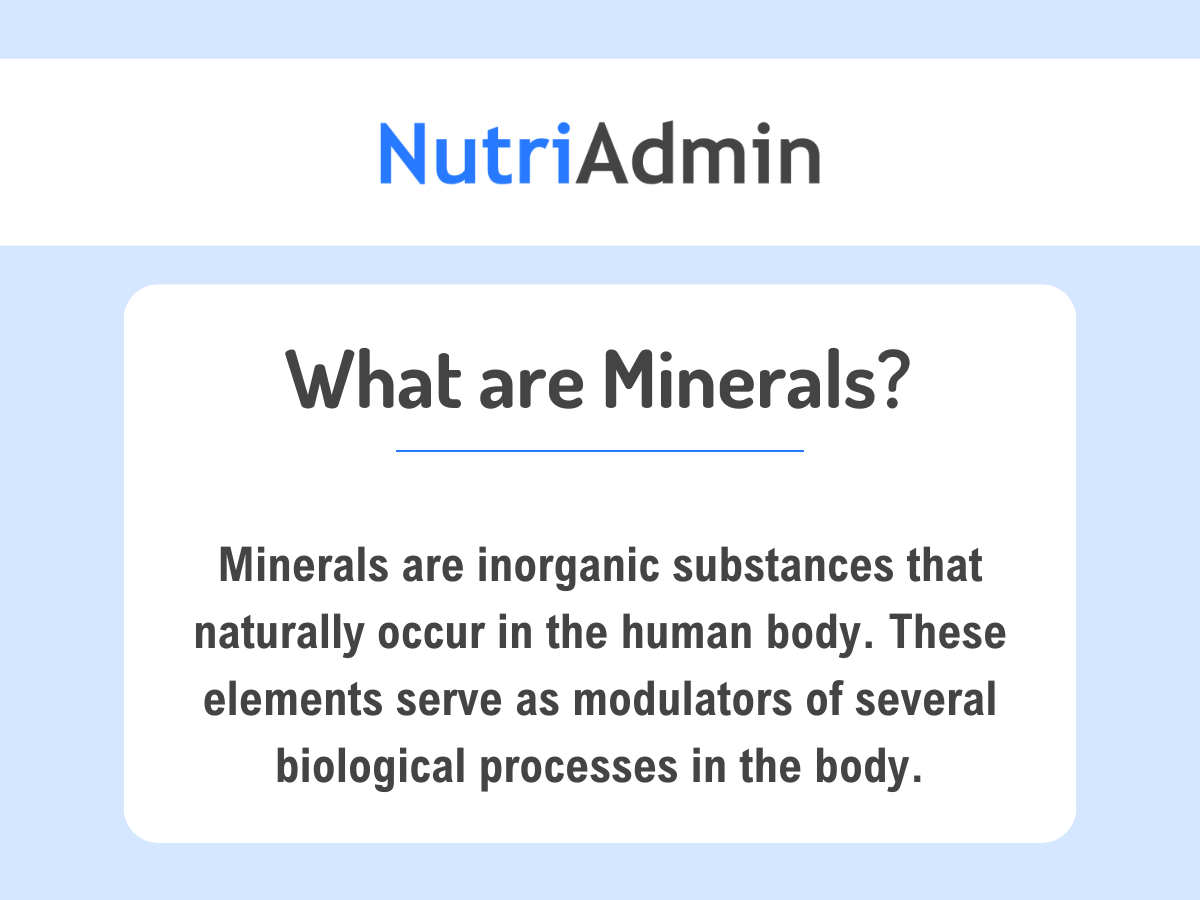
Major elements include Calcium, Magnesium, Sodium, Sulfur, Potassium, and Phosphorus. The body needs these elements in higher quantities. Trace elements include Iron, Iodine, Chromium, Copper, Manganese, Selenium, Zinc, and Molybdenum. They are required by the body in small quantities.
Vitamins
Vitamins are organic substances that perform diverse biological functions in the human body. They can be broadly classified into:
- Fat-soluble vitamins – Vitamins A, D E, and K, which are soluble in fat
- Water-soluble vitamins – Vitamins B and C.
Note that some amount of vitamin D can be synthesized on the skin when there is adequate exposure to sunlight.
Amino Acids
There are 9 essential amino acids that cannot be produced in humans and must be supplied in the diet. These are Isoleucine, leucine, valine, methionine, lysine, phenylalanine, threonine, histidine, and tryptophan.
Fatty Acids
There are two fatty acids that cannot also be produced by the body but are essential for normal function. They are linoleic acid and alpha-linolenic acid.
DRIs in the USA
Diet Reference Intakes (DRIs) are documents containing recommendations on how much nutrients you should take.
In the USA, these DRIs are the benchmark for assessing all documents that claim to provide nutrition advice and also measure how individuals are faring when it comes to their eating habits. You can use them to analyze your clients’ diets and give recommendations.
Nutrition Analysis Software
With the advent of technology, nutrition experts have developed various calculators, tools, and software that can enable you to analyze your clients’ diets for any deficiencies.
You can also make use of nutrition analysis software like Nutriadmin. The app is so easy to use and you can easily learn how to analyze a client’s food diary with it. Nutriadmin has been rated one of the best from customer reviews. The app can be used to detect deficiencies in diet and then you can recommend foods and supplements to treat the deficiency.
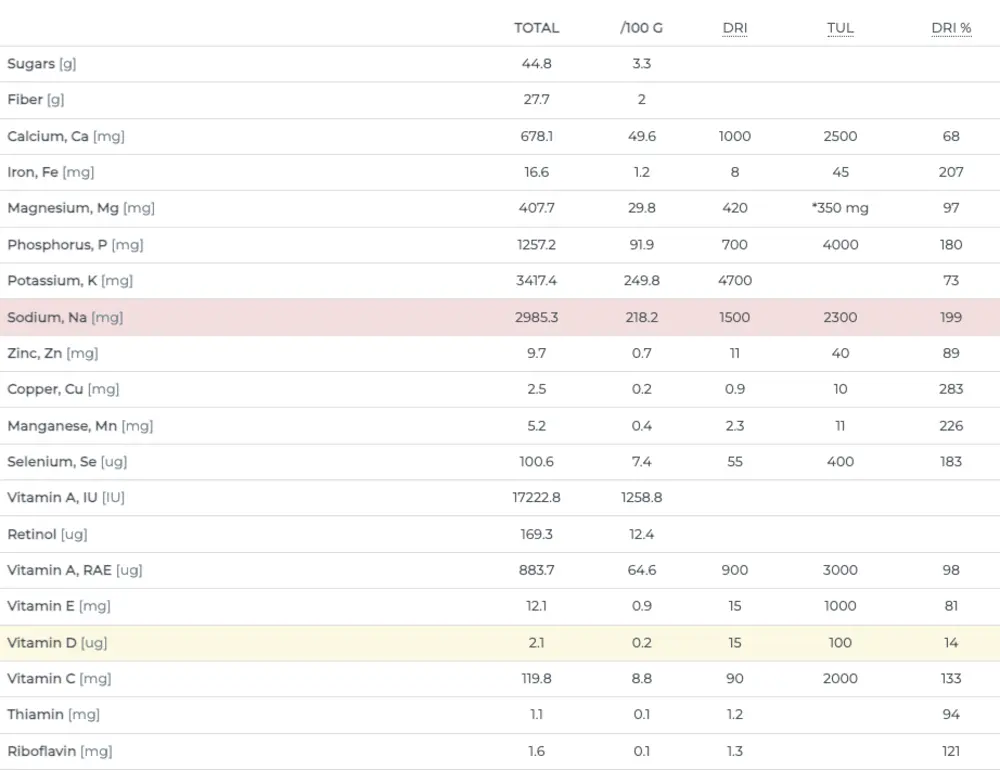
In the image above, Nutriadmin performed a micronutrient analysis and identified elevated Sodium levels and depressed Vitamin D levels in the diet.
Nutrition Analysis software can thoroughly analyze your client’s diet, and provide reports and recommendations for them.
Common Deficiencies in Popular Diets
There are different types of diets around the world. Most of these diets come with a particular focus and goals. It is important to state at this point that there is no diet type without a nutrient deficiency. As a nutritionist, coach, or personal trainer, you must know the common diets and their deficiencies, so you can counsel people on which supplements to buy to prevent deficiencies.
The Vegan Diet
The vegan diet is built on plants and foods that are obtained from plants. The diet eliminates foods from animals, including eggs and dairy products. Some evidence has shown that vegans have a 25% lesser chance of dying from heart disease. There are other benefits of this diet such as the reduced risk of developing cancers and diabetes.
However, studies have also shown that vegetarians are vulnerable to some nutrient deficiencies. The most common nutrient deficiencies associated with the vegan diet are Calcium, Vitamin B12, Vitamin B2, Iron, Iodine, Zinc, and Niacin. There are several ways to navigate these deficiencies you can explore if you still need to be on this diet, for instance, if you want to lose weight on a vegan diet.
The Mediterranean Diet
The Mediterranean diet is a primarily plant-based diet but receives contributions from animal-based products. It is majorly composed of fish, poultry, and small amounts of dairy products. This diet has been shown to be highly effective in reducing the risk of cancer, diabetes, heart disease, and depression. It has also been shown to enhance cognitive functions in the older population.
However, there are also some nutritional deficiencies that have been observed in people who take the Mediterranean diet. These include iron and calcium deficiencies.
The Paleo Diet
This diet is also known as the caveman, steak, or stone age diet. The principle here is to eat naturally grown meat and fish, with vegetables, and fruits, while eliminating dairy products and grains from the diet. The paleo diet has several benefits such as weight loss, blood glucose control, and improved cholesterol levels.
However, this diet is also associated with nutritional deficiencies in calcium, Iodine, and vitamins B1, B2, and D.
Selling Supplements Online
One of the easiest ways to sell supplements is to sell supplements online. Even physical shops have online platforms where they sell to their clients. It makes it easy for clients to order and receive their supplements.
Steps to Selling Supplements Online
Follow these simple steps to sell supplements online:
1. Know your Niche
What do you want to sell? Weight loss supplements? Dietary supplements or sports nutrition supplements? The supplement industry is very wide, and you must have your niche, know its ins and outs, and become an authority in the niche.
2. Know your Customers
If you do not know your customers, then who are you going to sell to? As a coach or nutritionist, you must have interacted with your customers over time, so you can have an idea of their preferences, attitudes, habits, and goals. Better still, you can do market research, like a survey to get more information about your customers. You may be surprised at the amount of new information you can gather from such a simple step.
3. Competitor Analysis
One of the best ways to start strong is to examine what your competition is doing. What are they doing that is working? What have they tried that failed? Are there opportunities they are missing you can exploit? An excellent competitor analysis can uncover incredible openings that you can leverage to get more customers.
4. Know the Regulations
Understand the regulations that govern supplement marketing and sales in your country. Some supplements cannot be advertised or promoted on some platforms. You must also be careful of the words and phrases that you use. In some countries like the US and Europe there are strict regulations guarding wordings and claims that supplement sellers can make. Ensure you stick to those regulations so you do not have problems with regulatory bodies.
5. Know your products
Different brands give different information about their products. Ensure they are NSF (National Sanitation Foundation) verified. This certification increases the trust and reliability of the supplement you want to sell online because it is only given after certain strict standards in manufacturing and testing have been met. You can also check customer reviews and testimonials about any product before you begin to sell. If a product works, then it is easier to sell. If a product is not effective, then you may have a hard time selling it.
6. Perfect your Logistics
How would your supplements get to your clients? You can work with logistic companies to deliver your products to your customers. Do you plan on serving only customers within your city, or do you have plans for interstate or international clients? Ensure you tie all loose ends, so your clients have a seamless experience from the point of order till delivery.
7. Maintain a Strong Online Presence
From your website to social media, your online game should be top-notch. Here are a few tips to help you get a strong presence online:
How to Sell Supplements Online
Websites
A website is key in running any online business. If you want to sell supplements online, then you should take the following steps:
Build a Website from scratch
If you decide to build a website for your business, you can get more control over the design and can optimize it better. There are several platforms you can use to build your website such as WordPress or Wix. You can also hire a developer to code a website for you.
Use Third-party Sites
You can also decide to sell your supplements on third-party platforms such as Spotify, Amazon, or eBay. These platforms can help to promote your goods faster. For instance, Shopify has more than 2 million daily active users. You can position yourself to sell to more people using this platform. But they charge a percentage for products listed on their sites.
Invest in Search Engine Optimization
SEO provides a consistent, long-term traffic inflow to your website years after you invested in it. With SEO, you get organic traffic that allows you to rank for keywords that are related to your niche. This would boost your brand awareness and conversion rates.
Functional and User friendly
Ensure your website is user-friendly and mobile-friendly since a lot of customers would use their phones to access your website. Your website should also allow different payment providers, orders, shipping details, coupons, and email or newsletter signups. It should also contain a testimonial or before and after section with clients sharing their experiences with your product. Try to get before and after images to convince your customers. Success stories are very helpful in helping other clients trust your brand.
Product Descriptions
When writing your product descriptions for each supplement, avoid using heavy medical jargon. Be as clear and simple as possible. Your clients do not need all the big medical terminologies. They need to understand what the product does and its benefits. Also, do not forget to always mention that they should seek guidance from a medical professional before using any supplement.
Active Blogging
A blog on your website is useful for SEO, generating brand awareness, and also establishing you as a thought leader in your niche. Naturally, when you begin to speak a lot about any subject, people subconsciously look to you as an authority on that subject. This is why you must take regular blogging very seriously.
Social Media
Maintaining a strong online presence is incomplete if people do not know what you do on social media. Social media provides an opportunity to directly interact with your customers, and respond to their needs. You can research where most of your customers are, and then build a strong presence, from X to Instagram, Facebook, TikTok, or Snapchat.
Ads
Running ads is another effective way of marketing your business to your customers. Choose the platform you want to run your ads on, based on your customer preferences. For instance, Google ads allow you to appear on top of the search results page when people search for keywords related to your supplement niche, then you can appear on top. Social media ads are also powerful and can place you directly in front of your customers. Ads can increase awareness about your brand, and boost conversions and sales.
Word of Mouth
Tell your clients you sell supplements! Now, this can be a bit tricky, because you do not want to appear like you are upselling them. But hey, if they need it, then let them know. Your clients are probably getting their supplements from somewhere else, and there is no harm in letting them know you also sell supplements.
What is Medicare Supplement?
Medicare supplement plans, also known as Medigap are insurance plans that cover areas that are not covered by Medicare Part A and Part B.
The first type, Medicare Part A is usually premium-free and it covers hospital care and hospice fees, as well as skilled nursing facilities. The second, Medicare Part B comes with a monthly premium and it covers preventive and medical services, including the usage of some medical equipment.
How to Sell Medicare Supplements
Here are a few tips for selling Medicare supplements:
- Know everything possible about the medicare supplement plans. Get the most recent and updated copy of the Medicare and You book and study it meticulously. Look out for any significant changes that have been made from previous years.
- Decide if you will work alone or work with a team
- Decide your manner of operations: virtual or physical
- Get a mentor to guide you
- Develop a documented marketing strategy
- Research the best marketing supplement companies and contract with them. Things to consider here include:
- Household discounts
- Years in the market
- Average price increase in last 5 years
- AM Best rating.
- Loss ratios (both national and state)
- Narrow down your leads: The best way to get leads is through direct mail. Word of mouth, friends and family, and cold calling are other methods that work.
- Interact with clients and sell!
Conclusion
Selling supplements online is not as difficult as it seems. As a nutritionist, personal trainer, or coach, you must understand why you are doing it before proceeding. You must know when supplements are necessary, or harmful. You must be able to recognize the signs of common deficiencies and counsel your clients on the right supplements to take and also when to see a doctor.
In the end, the overall aim is to get your clients to live healthy and also generate an alternate source of income for you. Selling supplements online can be very profitable and fulfilling for you, and helpful to your clients. So start selling now!
